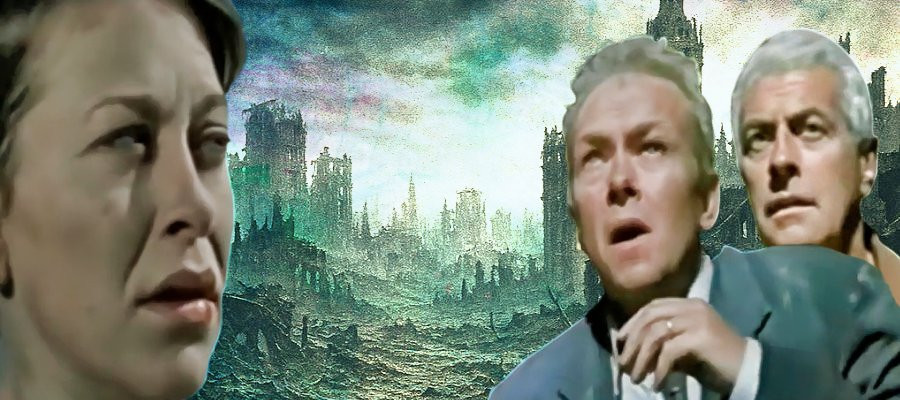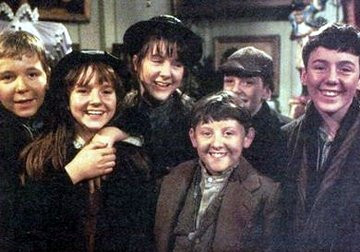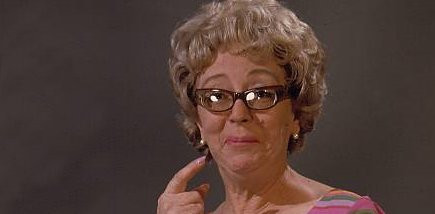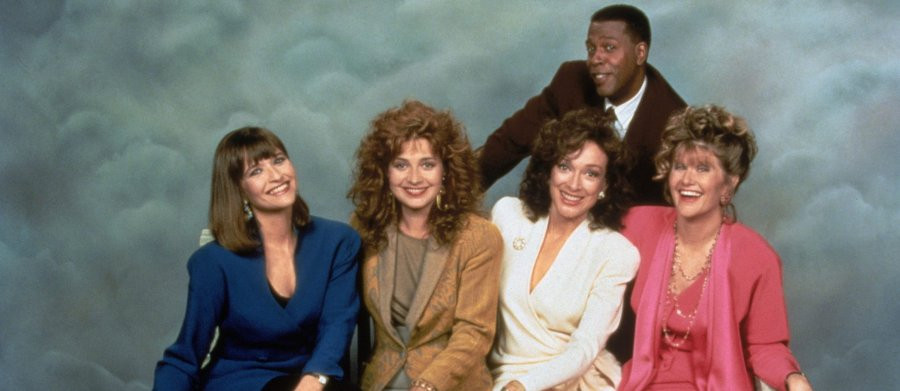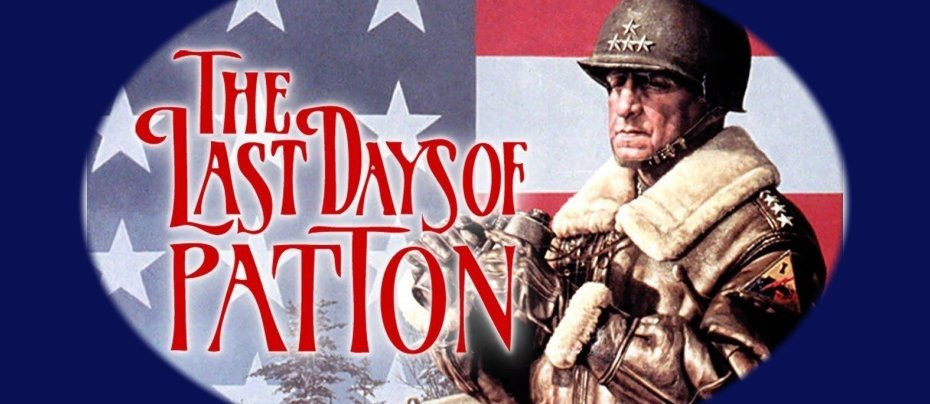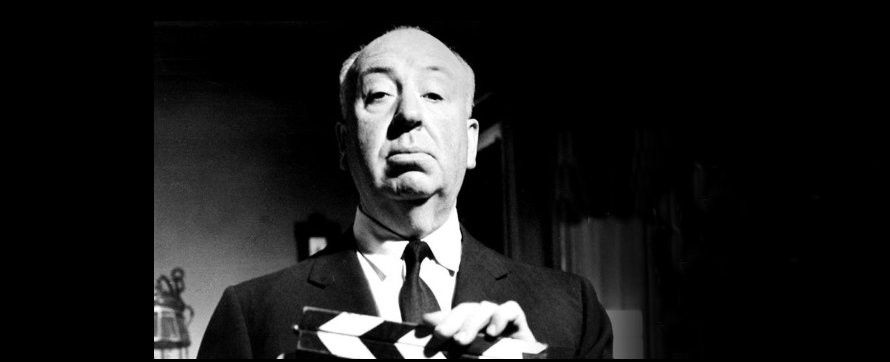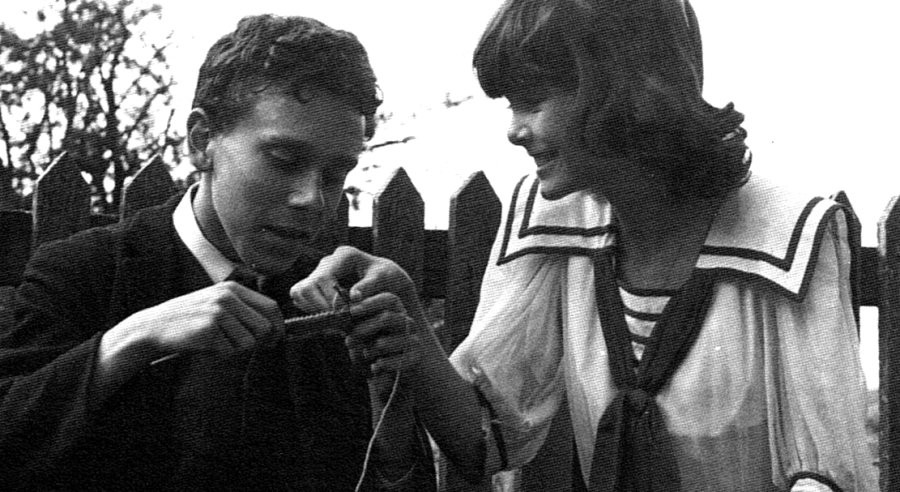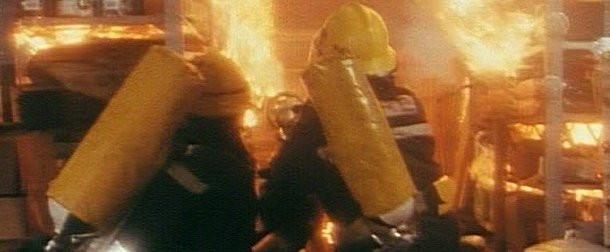
London's Burning
1986 - United KingdomAt one time, one of ITV's highest-rated series, London's Burning was an incident packed high octane drama that managed to mix comedic moments with genuinely life-threatening incidents as it followed the crew of a London based team of firefighters; Blue Watch B25, based at Blackwall fire station.
Viewers were first introduced to the fire crew in a one-off play written by the prolific writer of so many memorable TV productions, Jack Rosenthal. According to Rosenthal, he and his wife, actress Maureen Lipman, became friends with a London-based fireman, Les Murphy, who would often tell Rosenthal the stories of tragedy, comedy and "mess-table dramas" of his daily life. "He'd tell me things that had happened. Sometimes he'd be depressed and occasionally elated." These stories brought home the harsh reality of a fireman's life. "With each story, I realised more and more that the Fire Brigade was not only a whole world of its own," explained Rosenthal, "but a uniquely dramatic one of clashing opposites. Unlike soldiers or policemen to whom danger and possible death are a virtual raison d'etre, they are civilians. They don't face flick-knives, guns or bombs. They live at home with their families and go off to work like the rest of us. And there the similarity stops dead. At any moment in the next eight hours they could be fighting for people's lives in a literal hell of pitch-black smoke and searing infernos."
Inspired by Murphy's tales, Rosenthal wanted to write something about the Fire Brigade and gathered enough material for a documentary, a drama, and even a sitcom. But he was unsure which format to go for until he finally decided to mix all the elements into one TV film. It was an incident one night, in October 1985, that gave Rosenthal a direction for the story. It was the night that PC Keith Blakelock was brutally murdered during riots on the Broadwater Farm Estate in North London. Riots which for the first time saw London's firefighters come under attack. For a long time before the riot itself Broadwater Farm had become a minefield for fireman, lured there by hoax 999 calls only to arrive on the estate and be bombarded with paving stones-dropped from the balconies above. "To the small core of hard men from the ghetto, a fireman's uniform represented the same badge of authority as a policeman's and provoked the same hatred," Said Rosenthal-adding: "PC Blakelock was in the act of protecting firemen when he was ambushed."
To get a better understanding of a Fireman's day-to-day routine, Rosenthal joined the men from Hornsey Fire Station on several watch's, met senior fire officers, spoke to firefighters from different ethnic backgrounds, met women firefighters and engaged with residents of the Broadwater Farm Estate. "I'd read press reports about the men's animosity towards having a woman on the watch," said Rosenthal. "They claimed that their wives wouldn't like the idea of them working with women. It seemed like an interesting line to explore." Having decided on two key elements of the story, Rosenthal then began fleshing out the characters for his drama. He was particularly taken by the way firefighters were given nicknames by their colleagues and it reminded him of an earlier sitcom he'd written called The Dustbinmen with characters like Heavy Breathing and Cheese and Egg.
One of Rosenthal's trademark strengths was always his characterizations, and the charcters he devised for London's Burning were no exception. As well as woman firefighter Josie we were introduced to Rambo-the Watch's action man, Bayleaf-in charge of the canteen and with aspirations to become a chef, Vaseline-because he was slippery, Charisma-because he didn't have any, Sicknote-a hypochondriac with an atrocious sick record, and Ethnic-the only black firefighter on Blue Watch. Both Josie and Ethnic were the key characters in Rosenthal's drama. Josie has to deal with the overt hostility from other members of the Watch when she arrives at Blackwall for her first shift, until eventually earning their respect at a 'shout' (an emergency call). As a riot erupts on the estate where Ethnic lived with his parents his loyalties are torn between his job and his community. "What the film tried to show was that there can be faults on both sides," said Rosenthal. "The fault lies in society and the fact there are ghettos. What is patently wrong, though, is that firemen should be the subject of attack." The full horror of the riot is played out in the film as Blue Watch enter the emotionally-charged arena of conflict between the police and the rioters. As Blue Watch fight the raging fires Ethnic has to come to the aid of Charisma, who has been targeted by a group of youths. As he rescues Charisma his actions are witnessed by a gang watching from a high balcony and they launch a paving stone down on to him, killing him.
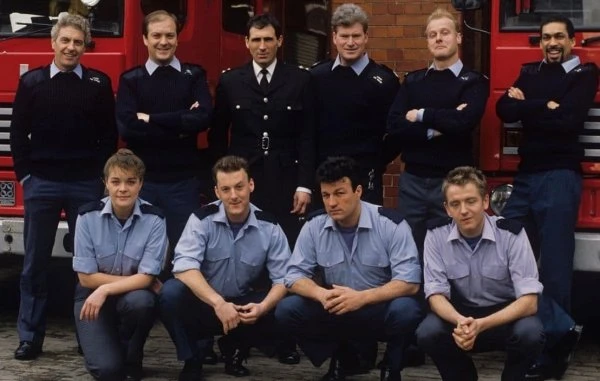
Rosenthal's screenplay was originally commissioned Linda Agan at Euston Films. But when Agan moved to London Weekend Television as Deputy Controller of Drama she took the script with her. It was john Birt, LWT's controller who gave the go-ahead for the film to be made. Co-operation was sought from the London Fire Brigade who were suitably impressed enough to provide two fully-equipped fire appliances for the filming as well as a working fire station for external scenes. London's Burning was broadcast on ITV on 7 December 1986. At a cost of £1million, it was then the most expensive film made by LWT. It was warmly received by critics and attracted an audience of 12.5 million. It was nominated for three BAFTAs (Best Single Drama, Best Film Sound, Best Film Editor). In light of its success LWT commissioned a full series, but Jack Rosenthal was not interested in writing for it and so producer Paul Knight decided to use two writers - Tony Hoare, a prolific screenwriter for Minder and The Sweeney and a little later Anita Bronson, who had also written for Minder and ITV Playhouse but who still lacked a little experience. Between them they wrote all but two episodes in the first three series. Another decision made at this time was to opt for the format of an on-going serial rather than one-off self-contained stories.
London's Burning - the series, debuted on 20 February 1988 and over its run averaged 12.1 million viewers. For the second season viewers were shocked when one of the main characters, Vaseline, was killed off. Paul Knight explained: "I thought it was important that we showed that because of the amount of danger these men were being involved in on a weekly basis, things can go wrong. It would be wrong if everybody came out of it unscathed every week." Killing off such a popular character meant the television audience were never going to be sure whether all their heroes were going to come out alive from fires or other dangerous situations in future episodes. By season four London's Burning hit a peak of 18.5 million viewers and showed no signs of slowing down. It wasn't until series 11 that viewing figures began to fall. There had, by now, been a number of cast changes as well as a completely new production team. The series, which had previously featured a major incident each week, now faced huge budget cuts and the style of the show switched to an almost soap-opera style concentrating on the private lives of the members of the firefighters. Series 14 saw viewing figures drop below 5 million and LWT decided it was time to decommission Blue Watch.
At its peak, London's Burning set our screen alight, blazing a trail of spectacular stunts, tension filled drama and fiery special effects. For a number of years it remained at the top of the TV ratings becoming LWT's most successful drama series of all time. It showed us the heroic efforts of ordinary men and women who, on a daily basis, put their own personal safety second in order to save life, limb and property. When a young Jack Rosenthal saw a fire-engine clanging down the road he said he got the vision of 'Enid Blyton postmen on bikes and long-gone village coppers on the beat.' Thinking about it he later said "I'm not sure why this was. Maybe it was because - just as civil servants are traditionally supposed to drink tea all day - firemen are supposed to slide down poles. Maybe it was because they rescued cats from trees. Or maybe there was an even simpler reason: that they really did grow up to become what we only said we would."
Seen this show? How do you rate it?
Seen this show? How do you rate it?
Published on December 31st, 2018. Written by Marc Saul (October 2014) for Television Heaven.



